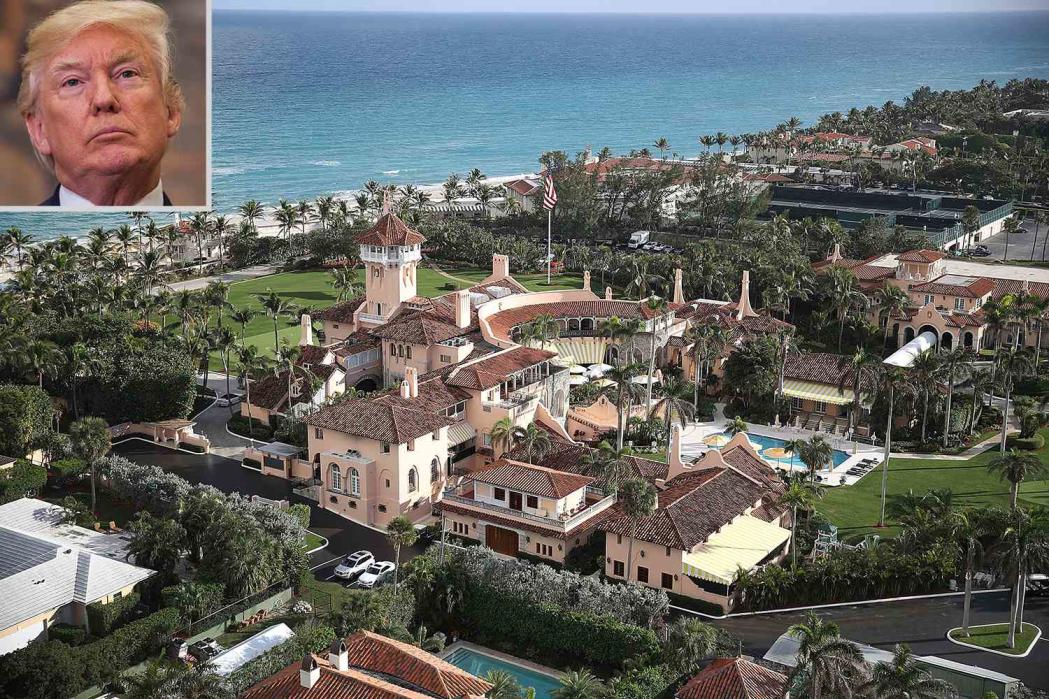Federal Judge Grants Bid to Appoint a 'Special Master' to Review Docs Taken During FBI Mar-a-Lago Search

- Oops!Something went wrong.Please try again later.
Joe Raedle/Getty. Inset: Zach Gibson - Pool/Getty Mar-a-Lago Club in Palm Beach, Florida. Inset: Donald Trump.
A federal judge on Monday granted Donald Trump's bid that a "Special Master" be appointed to review documents seized by the FBI from his home at Mar-a-Lago last month.
U.S. District Judge Aileen Cannon — who various outlets note was appointed to the bench by Trump — ruled that a Special Master will be tasked with reviewing the seized property "for personal items and documents and potentially privileged material subject to claims of attorney-client and/or executive privilege."
In her ruling, Cannon set a Friday deadline for Trump's attorneys and Justice Department prosecutors to submit a list of candidates to serve in the role.
CNN reports that Cannon's ruling also went a step further, describing the seizure of documents from Trump's home as "in a league of its own."
"A future indictment," she added, "based to any degree on property that ought to be returned, would result in reputational harm of a decidedly different order of magnitude."
The ruling comes after the former president, through his counsel, filed papers in the U.S. District Court's Southern District of Florida last month, asking that the government not be allowed to look at the documents until a Special Master be appointed in the case.
RELATED: A Timeline of the DOJ's Investigation into How Donald Trump Has Handled Classified Documents
The Trump's team filing claims that the government told Trump's lawyers that "privileged and/or potentially privileged documents" were seized, but specifics of what exactly was taken have yet to be provided.
Trump's legal team also accused the government of refusing to "provide even the most basic information about what was taken, or why," and said that the information they did provide sparks concern over Fourth Amendment rights — which protects citizens from unreasonable searches of their homes, documents, and possessions.
The FBI executed the search amid the National Archives and Records Administration's (NARA) attempt to recover documents that were potentially at Trump's Mar-a-Lago residence, which is where he returned after leaving the White House at the end of his presidency, per the filing.
Arguing that the documents seized were created when Trump was president, his lawyers state that they are " 'presumptively privileged' until proven otherwise," and a Special Master is the only one who can protect their "sanctity."
Never miss a story — sign up for PEOPLE's free daily newsletter to stay up-to-date on the best of what PEOPLE has to offer, from juicy celebrity news to compelling human-interest stories.
U.S. prosecutors have argued that "efforts were likely taken to obstruct the government's investigation," according to a filing the Justice Department submitted to a federal judge recently.
That filing outlines the government's previous attempts, over a span of 18 months, to have Trump and his attorneys return documents, including classified material, from Mar-a-Lago.
More than 180 boxes were sent to the National Archives from Mar-a-Lago in January. After the National Archives followed up for more records, Trump's team handed over 38 documents in June, along with a signed document stating that no other classified documents remained on site.
Despite those assurances, more than 100 additional classified papers were found when the FBI entered the property on Aug. 8. Trump has said documents stored at Mar-a-Lago had been declassified by him, though it's unclear if he undertook any formal process to declassify them. The claim has also been refuted by more than a dozen former Trump administration officials.

